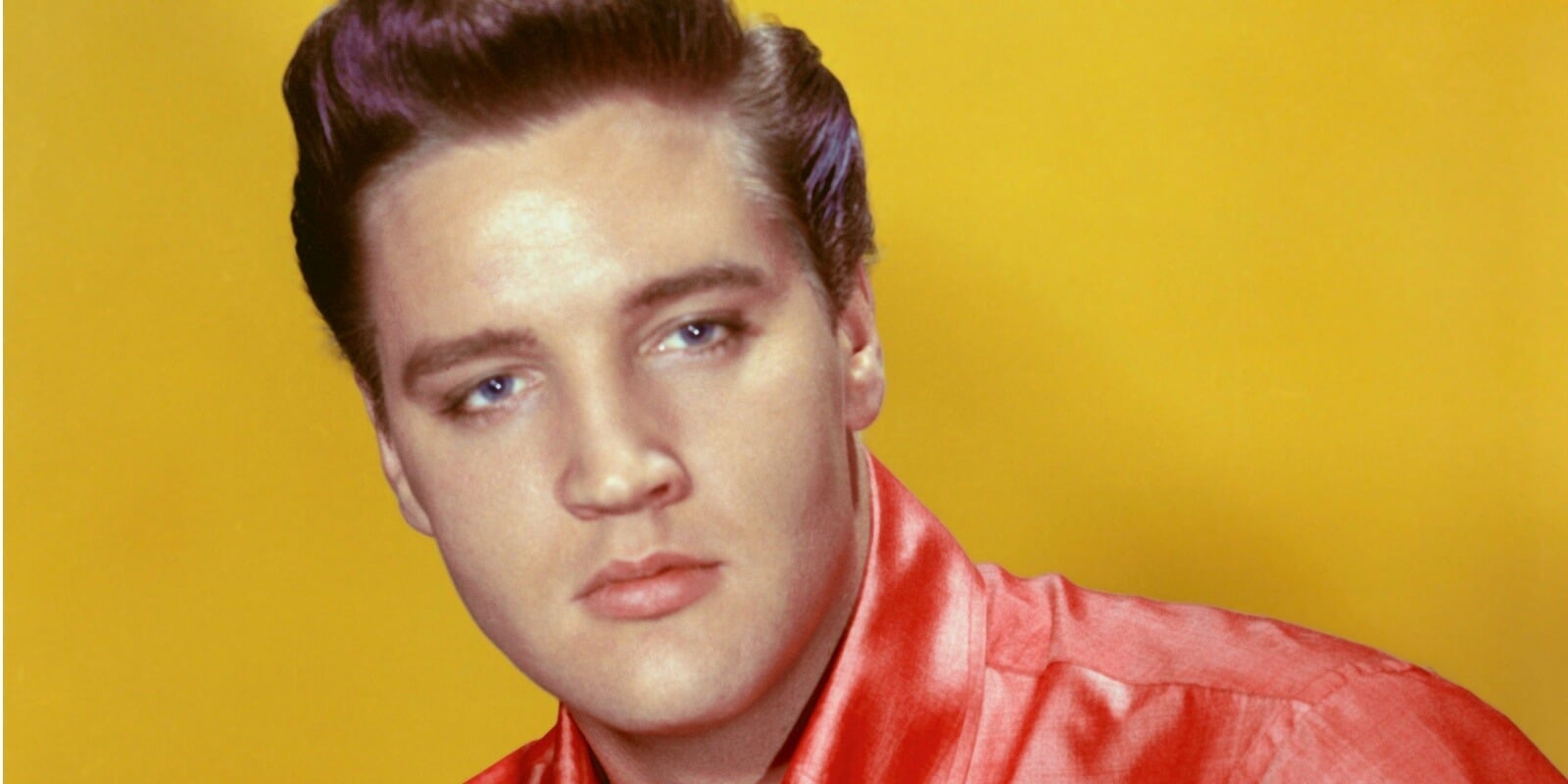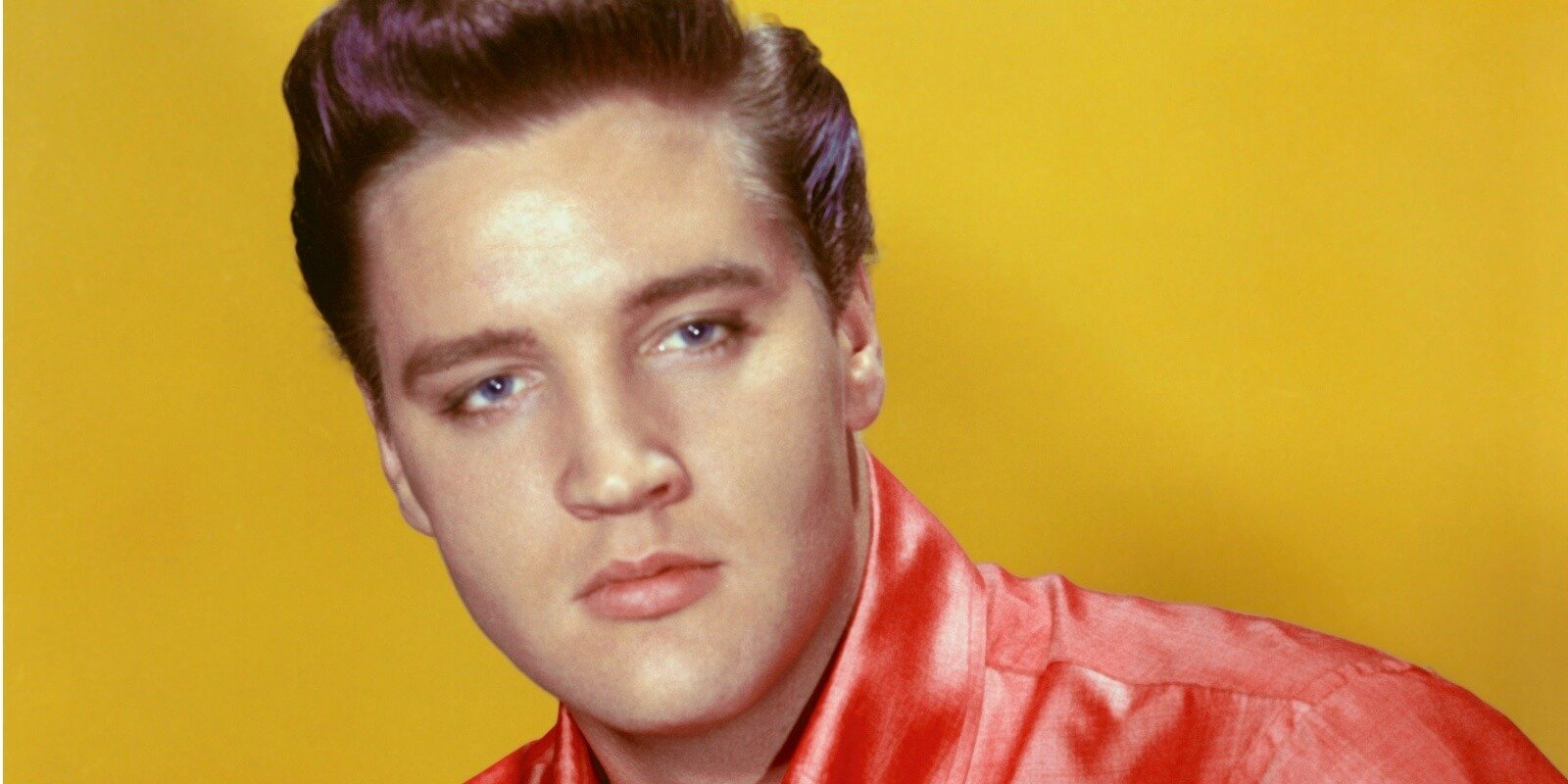
1 of Elvis Presley’s Biggest Hits, ‘Heartbreak Hotel,’ Was Based on a Real-Life Story That Had a Horrific End
In January 1956, Elvis Presley recorded a song that would become one of his most famous hits. However, the hard-rocking song with dark lyrics spoke of such a sad tale; it led listeners to wonder about its origins. So, what is the real story behind “Heartbreak Hotel?”

‘Heartbreak Hotel’ was one of the first songs Elvis Presley recorded for RCA Records
“Heartbreak Hotel” was Elvis Presley’s first hit after a jump from Memphis-based Sun Records to Nashville’s RCA. It was one of five songs Presley recorded on Jan. 10, 1956, two days after his 21st birthday.
Musicians included in the recording session were guitarist Scotty Moore, bassist Bill Black, drummer D.J. Fontana, Chet Atkins on guitar, Floyd Cramer on piano, and the vocal group the Jordanaires. Subsequently, the song’s story was darker than other lighthearted recordings Presley had previously done.
However, there was hesitation regarding the theme of the song. In fact, per the website Performing Songwriter, “Heartbreak Hotel” almost didn’t get released.
Producer Steve Sholes admitted, per Performing Songwriter, “They all told me it didn’t sound like anything. It didn’t sound like his other records, and I’d better not release it. I better go back and re-record it.”
However, Presley believed the song was a hit and refused to change the recording. RCA execs were concerned about the lyrics, based around a story of a man who was “so lonely I could die.”
The horrific real story behind ‘Heartbreak Hotel’
Rolling Stone Magazine took a deep dive into the sad story behind “Heartbreak Hotel.” Songwriters Tommy Durden and Mae Boren Axton cited a 1955 newspaper story about an anonymous man taking his life and a cryptic note citing a “walk down lonely street” as inspiration for the tune.
The real story of “Heartbreak Hotel” began in November 1953 when 25-year-old Alvin Krolik confessed to police his involvement in armed robberies in Chicago, IL. Reportedly his failed marriage to nightclub accordionist Agnes Sampson set Krolik on a life of crime.
Krolik reportedly wrote a memoir detailing his illegal misdeeds. Moreover, the story was picked up by a publisher who allowed excerpts of Krolik’s tale to be published in newspapers.
Krolik wrote, “If you stand on a corner with a pack of cigarettes or a bottle and have nothing to do in life, I suggest you sit down and think. ‘This is the story of a person who walked a lonely street.’ I hope this will help someone in the future.”
Two years after his confession, in August 1955, Krolik tried robbing an El Paso, TX, liquor store. However, it would be his last crime. He was killed by the owner of the store, Delta Pinney, who had already slain eight would-be-robbers before taking Krolik’s life.
The story was big news and was seen in newspapers as far as Florida, where the writers of “Heartbreak Hotel” found their inspiration for what would be one of Presley’s most enduring songs and his first gold record.
‘Heartbreak Hotel’ became Elvis’ first gold record
After appearing in Amarillo, TX, on Apr. 13, 1956, Presley and his band flew to Nashville for a recording session. However, the private flight experienced mechanical and navigation difficulties, reportedly rattling the king of rock and roll.
Images taken during that session show Presley appearing pensive. Whether or not this mood was due to flight problems or that he felt tired, only one song was recorded during the booked studio time. ” I Want You, I Need You, I Love You” was cut in three hours.
During the recording session, Presley was awarded his first gold record for “Heartbreak Hotel.” The song was the first Presley single to sell over one million copies.
“Heartbreak Hotel” would inspire millions of singers and songwriters for years. Some of those impacted by Presley’s recordings include Paul McCartney, John Lennon, George Harrison, Keith Richards, Elton John, and Robert Plant.


